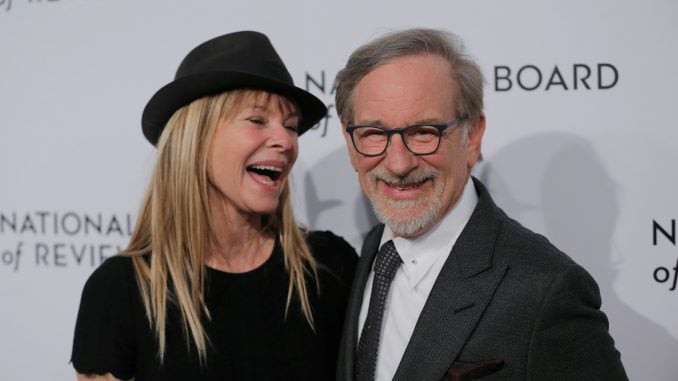
Steven Spielberg has made a new movie glorifying The Washington Post and how it rallied against then-President Richard Nixon and the Vietnam War in the Pentagon Papers court fight of 1971. It’s simply called “The Post.” Everyone inside and outside this movie is drawing the comparison between Nixon’s difficult relationship with the press and President Donald Trump’s.
Spielberg told the Hollywood Reporter: “The relevance is up to everybody to strike their own balance between the news today and the news then. But obviously, sometimes, bad things happen twice. History is certainly repeating itself.”
This movie became more urgent to Spielberg & Co. because Trump surprised the liberal elites and beat Hillary Clinton. The first script for this movie was set to glorify the rise of then-Washington Post owner Katharine Graham as a pioneer for women’s power in the nation’s capital, a theme that would resonate under the first female president. Meryl Streep said the movie is now relevant because the “press is under siege” in the Trump era.
Liberal Hollywood naturally sees the liberal media as an ally. No one in the movie business wants to produce a movie that makes The Washington Post or other media outlets look irresponsible. Imagine the movie recounting how in 1981, the Post rushed to print Janet Cooke’s utterly preposterous — and Pulitzer Prize-winning — story about an 8-year-old cocaine addict. Imagine a movie about The New York Times letting Jayson Blair invent stories out of whole cloth in 2003. Those newspaper movies will never be made, although they would certainly be based on real events.
The media, of course, were guaranteed to gush over this movie that polishes their historical apple. The New York Times played with the Post’s new Trump-era motto, titling its review “In ‘The Post,’ Democracy Survives the Darkness.” Stephanie Zacharek of Time magazine called it “a superhero movie for real grownups.” The Post “critique” by Ann Hornaday is headlined “In ‘The Post,’ Streep and Hanks Lead a Stirring Homage to the Pursuit of Truth.”
But is the media’s goal always simply the “truth”? Or are they motivated by an ideological agenda? Didn’t the Post (and pretty much everyone who worked there) want Nixon to lose to Hubert Humphrey and George McGovern, just like they wanted Trump to lose to Clinton?
If conservatives ever see this propaganda, what might surprise them is that the film’s lead characters chide each other for being too close to power. Graham would rush to spend a weekend at the ranch in Texas with “Lyndon” Johnson, and then-Executive Editor Ben Bradlee schmoozed around for plenty of dinners and drinks with “Jack” Kennedy. But Spielberg casts these characters as heroic by shunning their past sins of closeness to Democrats … by undermining Nixon — which only shows they were still doing exactly what the Democrats wanted.
Nevertheless, Bob Odenkirk, who plays the leftist Post Assistant Managing Editor Ben Bagdikian, bizarrely claims the movie is “nonpartisan.” That’s perfect in a way. The moviemakers, just like the press, love to pretend they’re nonpartisan even as they are doing the most partisan things imaginable.
Everyone should embrace the notion that freedom of the press is part of the system of government checks and balances. But what all the media are suggesting about this movie, and about this president, is that no one needs to act as a check or a balance on the press. They can be painted as dangerously “under siege” when their bias or errors are questioned. Despite the “superhero” treatment at the Cineplex, journalists are not automatically more noble and conscientious than everyone else.
Brent Bozell III is the president of the Media Research Center. Tim Graham is director of media analysis at the Media Research Center and executive editor of the blog NewsBusters.org.



